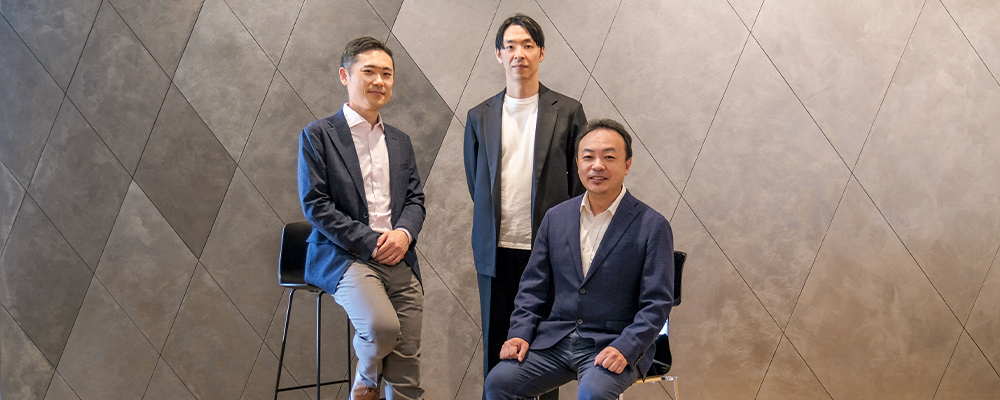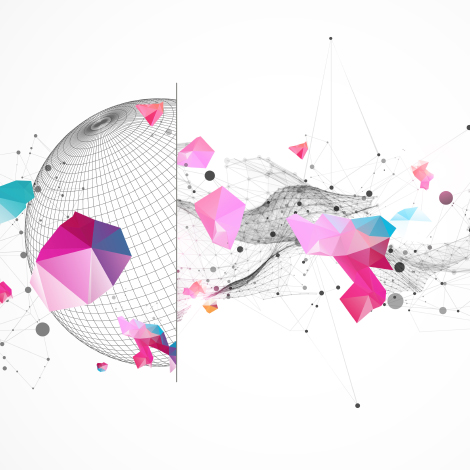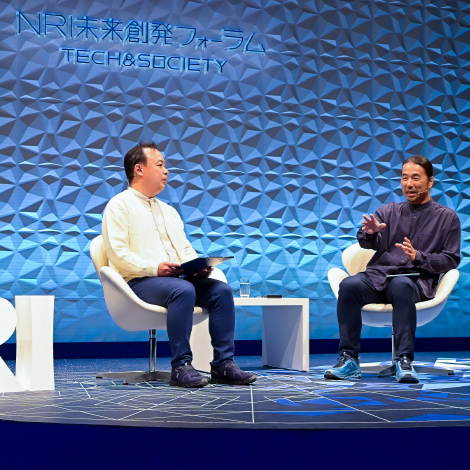Will a World Dominated by Generative AI Be Good News for Humanity? ――New Society in the Generative AI Era
Sep. 15, 2023
At the “Dream Up The Future Forum: Tech & Society”(in Japanese only) event held by NRI, talks are scheduled to be given by expert lecturers representing NRI on the topic of the “New Society in the Generative AI Era”.
Generative AI is spreading rapidly, and once it has been incorporated into various operations and services, what effects will it have on our lives and lifestyles, and what sort of impact will it have on how we work? We spoke with three of the presenters from NRI’s Center for Strategic Management & Innovation who have been researching the relationship between AI and society for many years, asking them to share their unique perspectives based on their individual expertise.
AI and capitalism: Will it bring about a creativity revolution or lead us into servitude?
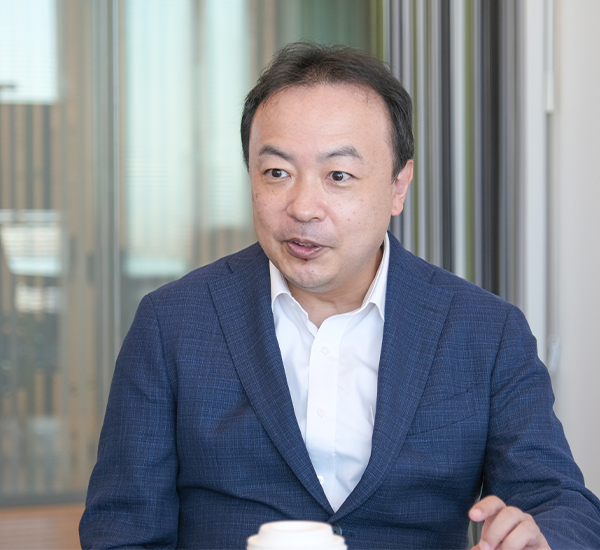
Mori: I first took note of this topic when the generative AI boom came after Covid-19. ChatGPT was released at the end of November 2022, and in just two months it already had 100 million users. AI itself had been the subject of research prior to that, but I think there is a relationship between the AI craze and the outbreak of the Covid-19 pandemic.
Covid-19 threw the world into turmoil in 2020, spreading worldwide in the blink of an eye, and it led us in a general sense to live our lives online either compulsorily or voluntarily, as well as leading to all kinds of things related to business or our personal lives to be done via the internet. As a result, the volume of digital data available to be gathered by platformers increased exponentially, and this presumably must have aided the development of AI, which becomes more precise the greater the amount of available learning data there is. The Covid-19 pandemic can probably even be said to have pushed along the advance of AI.
If we look at history, we see there have been times when epidemics have had lasting impacts on societies. The Black Plague (bubonic plague) which struck Europe in the mid-14th century supposedly killed around one-third of the European population, and the severe labor shortages and surge in wages that came in its wake led to innovative technologies like the printing press, and moreover the Renaissance.
In addition to Covid-19, the declining birthrate trend that’s been going on in Japan has been causing a manpower shortage, and even in the U.S. the labor force hasn’t fully recovered yet. That kind of labor shortage situation resembles Europe after the Black Plague, and it creates the need for labor-saving technological innovations, in exactly the same way it did then.
In my upcoming talk, I’ll be looking at the example of medieval Europe for hints as I explore how generative AI will have an impact on our society.
Knowledge evolution theory: Generative AI and productivity in 2030
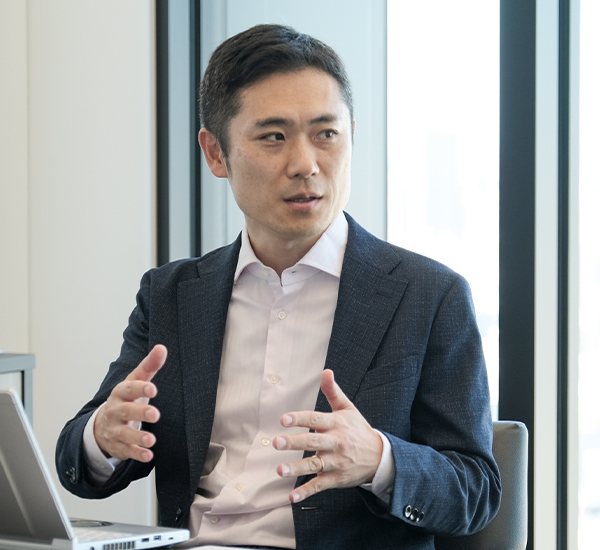
Nagaya: I’ve been studying AI technological developments since about 10 years ago when the deep learning boom took off, and in recent years I’ve been researching the effects of AI on the labor market. My focus has been on how AI or robots might replace certain kinds of work, what characterizes the sort of work that isn’t likely to be so easily replaced, and things like that. In my talk, I’ll be taking a deeper look at the degree of impact of this phenomenon, focusing on generative AI which is experiencing a boom right now.
This is my personal view, but current generative AI has two major abilities, these being “skills” and “knowledge”. Of these two, the skills we’ve seen emerge are things such as text summarization and translation, programming, and others that track human abilities. Meanwhile, the knowledge side of things still has some serious issues. This knowledge includes things like practical knowledge relating to business, literary or artistic knowledge, academic knowledge, and so on, but at the present time this technology has strengths and weaknesses, and it can’t necessarily be trusted. This might point to there being problems with the actual large-scale language models involved.
The search engines that we use when searching for something on the internet work by looking at cross-references between pages and then mechanically computing a reliability level. That means they’re able to find high-reliability sites from countless pages, but the way large-scale language models work is simply by finding text continuity and then creating knowledge, in the absence of any such reliable information. For that reason, they end up evaluating the good and the bad in the same way, meaning that the quality of the knowledge isn’t consistent.
In this sense, the knowledge aspect of generative AI is still in-development, and to what extent it will advance is something that I think will have major effects going forward, and I believe it will also determine what impact generative AI will have in different occupations.
Societal expansion: Designing harmony between people and AI
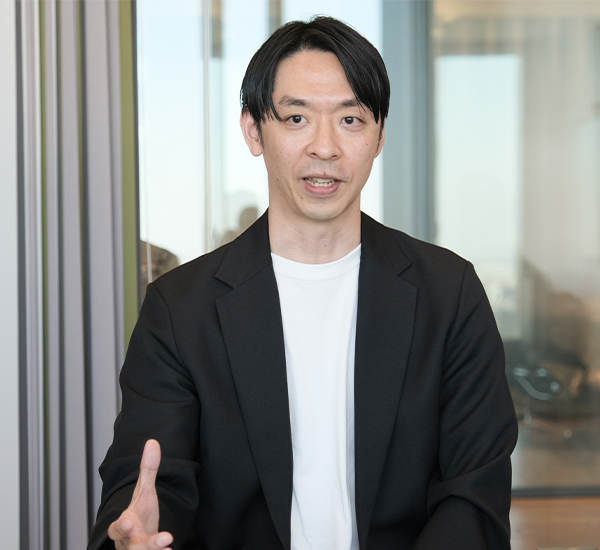
Nishikata: I’ve mainly been researching this from a technical perspective, focusing on how things like digital currencies and blockchains, data sharing platforms, and other aspects of digital social infrastructure can be harmonized with society. In the talk I’ll be giving, I want to touch on achieving harmony between people and AI in terms of digital social infrastructure.
In the case of physical infrastructure, building a highway for example allows trucks to be able to quickly transport large volumes of goods, and this changes our world. Depending on how we design things such as the number of lanes, maximum speeds, and the locations and numbers of interchanges, the scope and scale of this impacts will also be different.
Digital social infrastructure also will have different degrees of impact depending on how it’s designed, just like with physical infrastructure. Digital social infrastructure started with the internet, and has gradually been built up in layers as it has developed. Looking back on its history up to now, we can see that each time new elements have been added to digital social infrastructure, the way that these elements have harmonized with society has significantly changed. Currently, we’re at the stage where AI is about to take off in earnest.
I think the significance of generative AI lies in the fact that AI responses have reached the level where they’re hard to distinguish from those made by people. If we think about the magnitude of the impact that this sort of AI proliferation can have on society, I believe it’s important for us to develop AI and digital social infrastructure in view of the harmony we want to achieve between people and AI in terms of society as a whole. I’d like us to think together about what kind of harmony would be desirable in an era where AI is commonly used in our products and services.
The future of AI in stimulating intellectual curiosity
Mori: While there’s been an ongoing debate about whether AI will steal people’s jobs, recently we’ve also been seeing a profusion of knowhow about how generative AI can be useful in our tasks at hand. In my talk I plan to offer somewhat more of a bird’s-eye view of things, looking at them not just from that sort of short-term standpoint, but also predicting what will happen 10 years or 20 years down the road. Will we be able to have an empathic view of AI, and will AI itself be capable of empathy? This event will likely provide a chance to stimulate people’s sense of intellectual curiosity. I hope everyone will join us in thinking about this topic.



